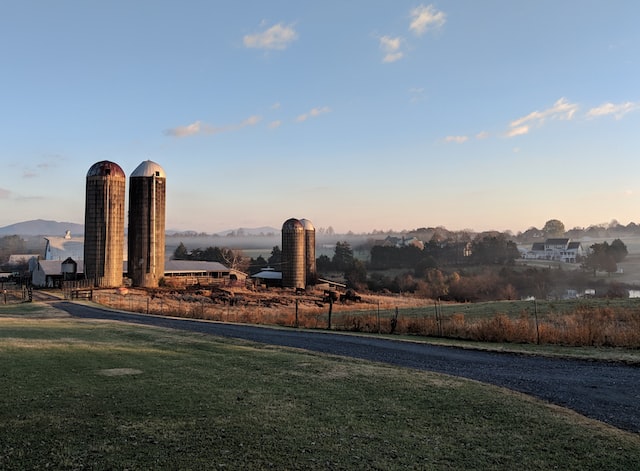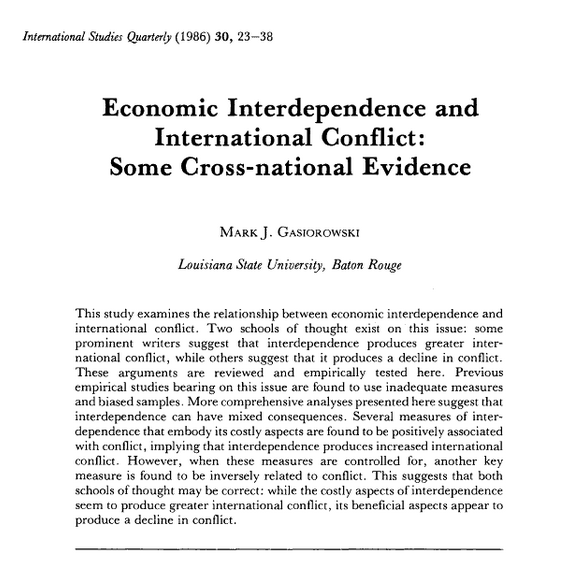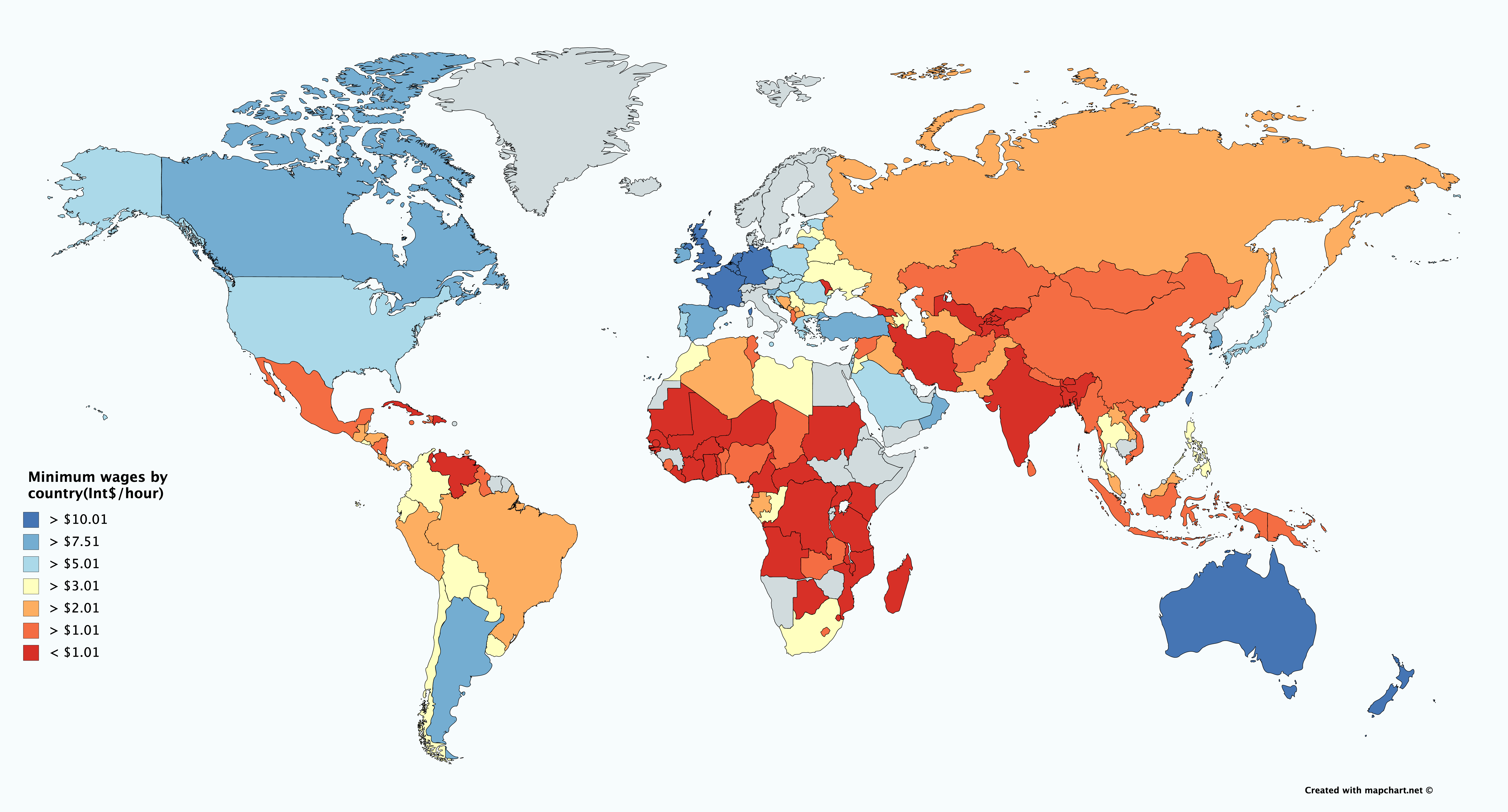The worth of a human being
This is the second piece of a series of articles that explore the effects of a specialized economic system in our society from a worldwide outlook.
Why specialization matters in our society: About growth and scarcity Link
Due to market competition, our current socioeconomic system based on specialization encourages workers to get very good at one task or a few tasks rather than be mediocre at many tasks. Workers and products must be “special” to be considered worthy for the market. Maybe you don’t like it, but this means that in the system we are living, worth is measured in money.
💰 💵 🤑 💰 💵 🤑 💰 💵 🤑 💰 💵 🤑 💰 💵
That is so because if you don’t have money, you have neither access to food (basic necessities) nor the means to fund production. In your personal life, you can have a different way of assigning worth to a person, but out there, it’s only about money. That is the main issue. The management of society goes around many other objectives, not just wealth. These objectives are even more critical to humanity than wealth. Let’s take health as an example. Any investment in a healthy community will be a significant contribution to growth as it ensures able members and reduces the number of dependent people to be taken care of. Nowadays, we put a price on people according to their health. In this socioeconomic system, sick people are not worthy. It doesn’t matter if is you, your mother or your little siblings.
It’s evident that specialization has brought some benefits to our society, but it has come the time to assess what we have been blindly doing all this time and what the consequences are. I will be giving examples; please, understand that I am talking about the average citizen and not my or your particular case.
Resource management
Specializing in only one service or product doesn’t always mean simplifying. It often means we get more complex management to what used to be a more straightforward procedure. This complexity of the organization comes with many setbacks that enable systematic errors. Eventually, they grow as a snowball and sometimes have a crashing result.
Materials
Specialization requires a constant flow of materials. We are starting to acknowledge that Earth has a limited amount of resources. Some can be recycled, but most cannot. Once the mine doesn’t have any more ore to extract, all those jobs disappear along with the families that depend on it and all the businesses that were based on this material, not to mention the incredible damage it creates in our ecosystems. That’s why it’s so important to be mindful of how we use them.

Photo by Jakob Owens on Unsplash
Let’s talk about shoes for a moment. We have plenty of options in the market. All kinds of shapes and materials. All sorts of prices too. But, regardless, the majority of them will be thrown away once they need fixing. If a customer goes to a repair shop, it’s unlikely they will be able to get a proper fixing. Maybe a patch if they get lucky. So, eventually, we all are forced to dispose of valuable materials without having the chance to extend their lifespan. In these circumstances, repairing is a very generalist work because it requires knowledge about many different models/brands/designs of shoes and access to a great assortment of fixing materials.
Jack of all trades, master of none,
but oftentimes better than master of one.
We cannot keep consuming at this rate. That’s a fact. We need more generalist workers that can repair and avoid so much wasting. I believe this kind of job is our future because it opens up an opportunity that solves many problems at once.
-
It minimizes the number of resources that we are using until exhaustion.
-
It reduces the pollution created due to the production of new items.
-
It generates jobs that encourage imagination and creativity rather than a sequence of boring repetitive tasks.
-
And also, general reparation it’s usually a local type of business.
But what can we do if big specialized companies sell products that cannot be repaired or are too specific to be fixed in a local shop?
Since money allows you to decide how to approach business, they have all the saying. Conscious consumers might complain about it with their friends, but the average citizen (struggling with inflation and low-wage jobs) can only think about what shoes they can afford. The change has to come from above.
Food
The specialization of agriculture has helped us to improve food production in many ways, but it also meant the rise of monocultures. To reduce costs, large portions of land are used for growing just a single crop. This practice can be very detrimental to a region’s soil and ecosystem. Something similar happens with livestock. Animal breeding is much easier and cheaper when done in a big factory. Fewer workers are needed, and transportation is also reduced. However, it increases the need for antibiotics and worsens animal living conditions, not to mention the tremendous environmental impact. This type of business pours enormous amounts of methane gas into the atmosphere and pollutes the surrounding water reservoirs with bacteria from the faeces—all of this without adding the CO2 emissions that its transportation entitles.

Photo by Josh McQuaid on Unsplash
A food production system where the norm is a small local farm would have many benefits for the environment and society. For instance, it creates more jobs. On top of that, the ecosystems will have the right variety of species to keep a natural balance. As to exemplify, we can think of a more generalist type of farming where faeces are used as fertilizer and insectivore animals, whilst getting fed, are controlling infestations. The following video is a documentary that shows how very possible it is. We only need to share knowledge and patience to build such a world.
I imagine we would produce fewer quantities of food, at first at least. But I don’t see it as an actual concern. Not yet, anyway. Every day tons of food are thrown away without it becoming a financial loss to the companies that own the production, transport and sale of food. It’s not like they are sending food to those countries where people are famished. We have a food excess and an undesired environmental impact. I don’t see why wouldn’t we want to have farms with better conditions, more jobs and less pollution.
Skilled workers
One of the benefits claimed by specialization is better work performance. The specialist has more in-depth knowledge of a particular task he/she is conducting, so the product or service will be of higher quality. This is as much truth as it is a lie.
In an ideal specialist world, we have focused workers who know all details of the task, know all the protocols to be followed and have long-term experience doing so. They start and complete the task always in the same way, just like a machine would do.
In jobs that are just very simple repetitive tasks, you often find a great amount of low-skilled workers. As they lack the knowledge, they are in the position to make many small mistakes that pile up over time and end up being very complicated ones.
On the other side, developing a project or even the maintenance of a business isn’t always a simple repetitive task; you often have unexpected problems to solve or complicated improvements to implement. When doing these high-skilled jobs, it is a misconception that you can focus on only one specific subject. In fact, if you want to do it the right way, you need to understand your task’s impact on other team members’ work too.
So the downside of specialization, when we look at workers’ abilities, is that we find a lack of perspective. When you come across a problem, or you are in charge of the design of a project, you need to look at it from above. It is necessary to think of it in a holistic way; otherwise, we tend to make decisions that might very well suit our specialized field, but they might become a huge inconvenience to our colleagues (working on the following task).
Specialisation promises an increase in happiness for everybody because it suggests you can choose how you spend your time.
“If you need a table, but you are good with the guitar, you just make music and get the table from someone else who is good at making them.”
No, not really.
The satisfaction of the workers (the happiness of us humans) is not so easy to reach in these conditions. Oftentimes, workers are not becoming good at their specialist job because it doesn’t make them happy. Sometimes it’s because they haven’t chosen wisely, but more often than not comes the reality that competition is so great that you cannot make money doing what you’re good at. Think about an 18 years old human who has to decide what is going to be “their specialization” for life. That’s a lot of pressure. I don’t blame them if they don’t get it right.
You might think they can always find a different job, but changing careers is nearly impossible. For starters, you already have spent a lot of time trying to become a specialist in something that doesn’t match your natural skills. By the time you figure out what you enjoy doing and what you are good at, you realize you need money to survive, so you cannot leave your job. But becoming a specialist in your newly found passion takes a lot of time that you don’t have, and while you are learning, you are not competitive enough to be hired for that kind of job. Yes, it is a Cath 22. Learning this new specialization combined with a “hated” job becomes so difficult that plenty of people give up on life.
International political game
Interdependence of Nations
You may open your fridge and see that your mangoes come from Brasil, the jelly from Thailand, and oranges from Spain. You open a cabinet and find a cup made in China and some chocolate grown in Peru. That cabinet was designed in Sweden, and the bottle of wine you are about to drink was filled in South Africa. For us to enjoy all this luxury, our countries must rely on each other trading the goods and services of their field of specialization. This cooperation (interdependence) has considerably improved many people’s lives and even avoided escalating conflicts. But it is not as simple as it looks.

The real world is much more complicated than our kitchen. Something so trivial as a change in taste or fashion can bring a whole industry to the ground endangering the possibility of a Nations’s contribution to this interdependence system. So imagine the consequences when competition comes into play. The labour cost has moved entire companies from one nation to another. Many countries disregard the working conditions of their citizens only to lure big businesses to their land. We have seen how the USA harassed Iran, keeping them out of many trade opportunities without apparent reason. The current situation between Europe and Russia reduced gas trading, and transportation prices rose. It seems interdependence can turn into a toxic environment where power is abused. All that glitters is not gold.
Deindustrialization
At this juncture, deindustrialization becomes a natural consequence. When they choose to do it, a country loses their manufacturing industry in pursuit of services. Robert Rowthorn and Ramana Ramaswamy sustain in their article Deindustrialization — Its Causes and Implications that “deindustrialization is primarily a feature of successful economic development” because when they look at the domestic expenditure on manufactured goods, this one has remained stable; so they think that “deindustrialization is principally the result of higher productivity in manufacturing than in services”. “Finally, the paper suggests that advances in the service sector, rather than in the manufacturing sector, are likely to encourage the growth of living standards in the advanced economies in the future.” But all of this only happens because their advanced economies are counting on exploitation. The exploitation of their citizen and exploitation of those citizens that live in developing countries that manufacture for the advanced economy. I am saying this because they are totally opposed to centralized wage-bargaining arrangements.
These are an Economics Professor at Cambridge and an Economist in the Research Department of the International Monetary Fund who consider that having a minimum established wage that ensures access to basic necessities “could have adverse consequences for the growth of productivity”.
I am sorry if I don’t care as much about productivity growth as I do about the safety of most of the population. I don’t think it matters that Apple and Amazon are American or that Shell and Volkswagen are European if they are not doing anything for the future of their countries (and population). What matters is that when you are sick, need a vacation or want fixed working hours, you can get it as any human being deserves it. Look at this map and see how those countries with higher standards of living also have a more significant minimum wage too: Central Europe, Canada, and Australia.

Photo: https://www.reddit.com/r/MapPorn/comments/cyk5fr/minimum_wages_by_countryinthour/
Let me tell you that economic papers like the one I referred to earlier are often opinion based (in opposition to evidence-based). I don’t think this is fair for those of us who are seeking knowledge on this topic. Before you analyse the economy, you have to decide what kind of society you aim for. Preparing to write this piece, I came across an insane amount of what I considered misleading articles. Many economists mistake big companies’ particular objectives with society’s general goal. Whenever someone tells you how the economy needs to be in order to function, ask them first about their goals. They might not even have thought about it. Sometimes we just replicate what some fancy dude in a suit tells us to think.
The worth of a human, the worth of Earth
I understand that money is what moves the world. We are nearly 8 billion people, and that’s a hell of a lot of people. Ok, I agree. We need some trading mechanism, and money is the best option. But when we focus on accumulating it rather than seeing it as a tool… We forget about humanity.
Did you know that companies increase their revenue goals every year? They don’t contemplate just getting by as they ask the regular citizen to do. We live in difficult times, and still, billion-dollar businesses want more.
We have a cow called Earth, and we have milked it all the way. We can give it a rest and hope that will help, or we can keep lowering wages and polluting the ecosystem until it dies. You can listen to the rich economists and dream you will become one of them. Or you can join the educators, health professionals and ecologists trying to find a solution to the problem the pursuit of wealth has created.
Support the author and get the latest publications subscribing to:
Look at her latest book 📕, En Brandán

